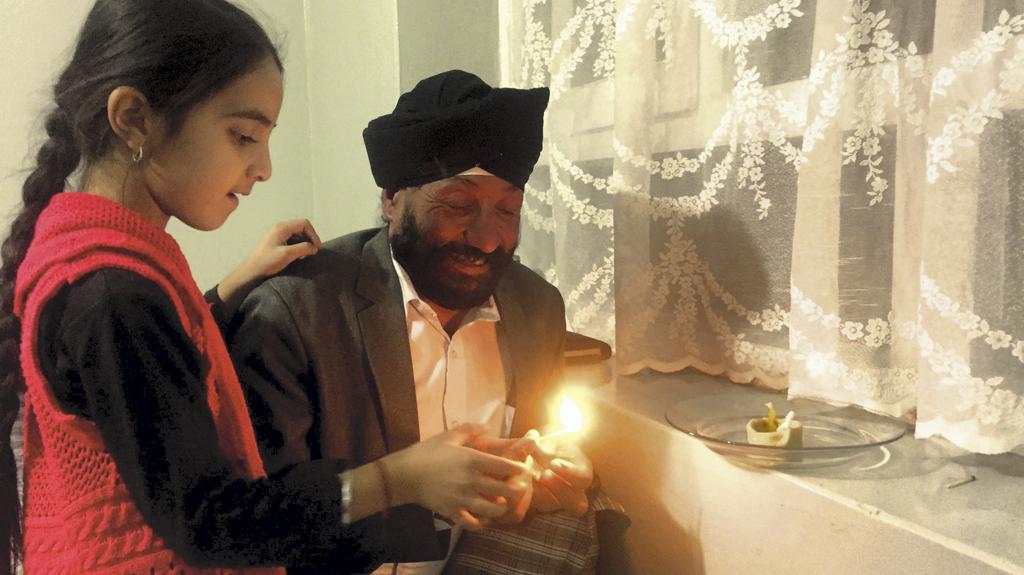A nondescript building with no signage, lights or other decorative features, the purpose of the Asmayee Temple in the heart of Kabul is known only to the small number of Afghan Hindus — and sometimes Sikhs — who visit it regularly. These days, few in Afghanistan are aware of the existence of their Hindu and Sikh compatriots, and even fewer know that this week the two communities are gathering at the temple to celebrate Diwali, one of the most sacred festivals for Hindus and Sikhs.
In contrast to its outer appearance, the inside of the Hindu temple is bright and colourful; its rooms decked with streamers and holiday lights. But the festivities here are far simpler and more sombre than Diwali celebrations in other parts of the world, a reflection of a people eager to remain discreet. The prayer hymns play softly in the background, much like the conversations of the worshippers.
“It could prove to be very dangerous for us to celebrate our faith with the pomp and splendour,” shares one volunteer temple worker, speaking to The National on the condition of anonymity.
“We can’t even practice our funeral rites with dignity — grand celebrations are a far-fetched dream,” he adds, referring to the incident in 2012 when a Hindu funeral procession was attacked by an extremist Muslim mob in Kabul.
In a local cultural trait adopted by both the Afghan Hindu and Sikh communities, female and male worshippers gather in separate rooms to offer their prayers to the various gods and goddesses revered by Hindus, as well as Sikhs.
“It isn’t celebrated [here] like Diwalis around the world,” says a young Hindu woman named Komal. “It’s just another occasion for Afghan Hindus to meet with members of the community.”
“No bright light and fire crackers for us,” she adds, as she lines the staircases with small clay lamps and candles to be lit during the evening prayers.
But this wasn’t always the case.
Read more on The National UAE
